- Home
- Matthew Pearl
The Dante Chamber Page 2
The Dante Chamber Read online
Page 2
“Need a hand, miss?” Ethel now asked with gentle concern. “By the by, I found one of your volumes of poems in the library, and don’t go telling the sisters I said so, but how it beat those dusty editions of sermons in there something terrific!”
Christina felt her olive cheeks color.
“I remember some of my favorite lines. Shall I say them?”
“Certainly not, Ethel.”
Ethel had already begun:
I wish I were a little bird,
That out of sight doth soar . . .
Or memory of a hope deferred
That springs again no more.
“We ought to finish serving, Ethel. Chapel begins soon.”
The charity home had a rotating list of ministers who would come and preach, so that there was at least one a day. Christina brought food to the chapel, where the guest on this day was readying himself at the pulpit by looking over some handwritten pages.
“Suffering . . . is . . . not . . . sin,” the preacher practiced, speaking slowly to himself as much to prepare his voice as to rehearse the language. This was Reverend Fallow, a stately man who paused to salute Christina as she silently left a plate for him to eat before his sermon.
As Christina continued her duties, she reviewed to herself all the reasons to ignore her ominous foreboding, the reasons circumstances did not justify her apprehension and that her own flawed imagination alone caused her worry. Sound reasons, every one. But she could fight her feelings for only so long. Her father had always urged her to trust her instincts the way her mother urged her to trust the Bible.
“Sister Christina,” came a whisper so natural it had to belong to a nun. “Miss Rossetti,” the voice tried again.
Christina had frozen in midmotion while carrying another large pot from the kitchen. She blinked herself back from her trance.
I wish I were a little bird.
“Are you feeling ill, dear?”
Christina assured her she was fine. “I’m only feeling as though . . .” She paused to think what it was.
As though he needs me now. When she composed poetry, the voice in her heart was hers and not hers. This was how she felt at this moment. She could doubt herself but she could not ignore the voice. He needs me now.
The pot slipped from her grasp and splattered her a deep red and brown. Her apron looked like it was covered in blood.
The nun suggested she go home to rest.
“Not until the women are fed, Sister.”
“We have made some progress with you, at least. Yours is the only apron that always remains white and pristine after helping serve fifty-five famished women. You’ve finally joined the rest of us mortals: not always as steady as we’d like to be. Care to talk about what’s weighing on you?”
Christina offered a hint of a grateful smile. Hers was a face so stoic and serious that an artist friend of her brother’s had once asked her to pose as Jesus Christ for a painting. She thought of speaking about her worries but didn’t. It wasn’t just that she didn’t want to seem egotistical speaking of her own problems, though it was true she didn’t. Christina would not trust even a nun with her feelings.
“Sister Christina,” said the woman in the dark habit. “Happy and unhappy Sister Christina. Come, we’ll bring the chowder in together.” The nun gripped one handle on the pot while Christina held on to the other. She had a mission to finish here, then one to begin.
* * *
—
By three o’clock on club days, the windowless room two flights up in the grand building in Cornhill filled with the greatest literary and artistic geniuses of England. It was said that by the time enough members of the Cosmopolitan drifted in between, say, four and six o’clock, a visitor could not think of a question too obscure that it could not be answered by one of the men in this room, putting aside whether the answer was correct.
One of many poets who belonged to the club, Robert Browning, at first bounded up the stairs on his way to the gathering but abruptly slowed down. Just moments before, he was eager to be going in. Then his brain betrayed him with the following train of thought, which began harmlessly enough:
This would be the first club meeting of January.
With January had come 1870.
With the New Year came another year without Her.
Another year without Her was another to wonder whether he could endure it.
He glanced down the dim stairwell. If anybody were coming behind him, he’d look lively—lock eyes, smile, shake hands. Empty, for now. He pulled off his lemon-colored gloves by the tips and caught his breath. Then he brightened with a better thought. Whenever the Cosmopolitan Club announced a gathering, members would come from across London and beyond—you never knew when the next meeting would come, and as a result, once one was scheduled, nobody wanted to miss it. This being the case, Browning expected he might encounter the one man in the club who truly understood his loss, whatever other differences existed between them. This comforting idea reanimated Browning, sending him the rest of the way up the steps into the smoke-filled chamber that vibrated with laughter and talk.
Cheers and toasts greeted him on all sides—the Irreplaceable Robert! the Glorious Browning!—along with New Year’s wishes and quotations from “Childe Roland to the Dark Tower Came” or his recent epic, The Ring and the Book. The first people he asked had not seen the man he looked for. On a sofa in the corner of the room, with his feet up on a chair, he spied one of his fellow stars in London’s literary constellation. England’s poet laureate.
Alfred Tennyson peered over the top of his newspaper, as though just remembering he was at the club meeting.
After they exchanged greetings, Browning asked, “Has Rossetti come yet, by chance?” He asked as offhandedly as he could, though Browning never did succeed in offhandedness.
“You know better, Browning. I can’t see someone until they crash against me. Remember, I’m the second most shortsighted man in England.”
Tennyson would stay on the sofa so other members had to come to him. Which they did. Everyone paid tribute to the wordsmith with the long pointed beard, and for that reason Browning had hoped Tennyson, eyesight aside, would have already met the man he sought.
“Odd,” replied Browning, pulling a chair closer.
“Gabriel could forget about his own birthday, you know, Browning,” Tennyson said. “Today’s date slipped his mind, I’d wager.”
“I don’t mean just not coming to the club is odd,” Browning said. “I was just thinking of Rossetti on the way here because—well, something made me think of him, and I realized it’s been a while since the last time I’ve seen him at all.”
“How long?” Tennyson asked, suddenly interested.
Browning recalled running across Gabriel in Bond Street and talking about a mutual friend who had moved away from London after a mental collapse. Ah, how I still hope to be an outcast from humanity one of these days, Gabriel had said, one of the painter’s signature comments that could have been in jest or the beginning of a manifesto.
“A month, maybe, since we crossed paths,” Browning said with a quick calculation. “Five weeks?”
The timeline might spark an insight in Tennyson. In general, Browning trusted the poet laureate to be practical and well-informed. When Browning wrote his will, he brought it to Tennyson to be witnessed. It will be a wonder if this is legal, Browning joked at the time, written out by one poet, witnessed by another.
“Look at this!” The laureate returned to a column in the newspaper reviewing the latest crimes and trials in London. “We are tender to criminals, Browning. We are more tender to savage criminals than to ourselves, and that’s why more and more exist today than ever. You heard the terrible story about the Honorable Mr. Morton, I suppose?”
“The politician,” Browning replied. “Yes. Found somewhere in North Woolwich,
wasn’t it?”
“That’s right, in the pleasure gardens, which are beset by all the sins of man. Have you been following the details?”
Though it dominated the papers, he had avoided reading most of it. Browning had been at a few social affairs at the same time as Morton over the years. Morton, from what he recalled, had been a haughty type, using his seat in the House of Commons to prove himself important.
“The newspapermen relish any story that proves that London is sinking into the ocean under the weight of its vices, and maybe it is,” Browning said. “Morton was bludgeoned in the head with a rock, wasn’t he? To be honest, my dear Tennyson, I try to stay away from the morbidity that always excited you and Dickens.”
“You don’t always stay away from darkness, now do you, Browning? No, the poor soul wasn’t hit on the head with a rock, nothing so ordinary. The stone was actually fastened . . . ,” Tennyson said, stopping himself and making a halfhearted gesture of apology before puffing the pipe that perched between his lips. “I suppose Dickens turns loose what you call morbidity in his books, while for me the darker side of humanity seems to better reveal the light. Example: Why do mosquitoes exist, Browning? I will tell you. They exist to remind us that they should not. After God made his world, the devil began adding his touches.”
Browning had no patience for Tennyson’s philosophies, and Tennyson noticed, circling back. “Careful not to feel too tender about the remarkable Gabriel Rossetti. He doesn’t keep skeletons in his cupboard; his skeletons drink whiskey and dance along the road while out for long walks. Why so fixated on him, Browning?”
Browning wanted to say: He lost an Elizabeth. I lost an Elizabeth. This came out instead: “He’s a friend.”
Tennyson gave a skeptical ugh and Browning suddenly found the poet’s expressive, judgmental face irritating—made to be sculpted rather than spoken to. At the same time, Tennyson always had an uncanny ability to read other people, frequently compared by friends to a Scotland Yard detective, and Browning could not help but be curious what he thought.
Tennyson explained: “That word. ‘Friend.’ Rossetti talks rather critically of his friends, including the two of us, I daresay, when we’re not present. Sometimes even when we are present,” he growled out a chuckle.
Browning thought back fifteen years earlier, when he and Elizabeth lived in Italy and made a visit to London, inviting over Tennyson, Rossetti, and other poets and artists. They read from works in progress. Browning read “Fra Lippo Lippi,” before Tennyson, first objecting to the idea of reciting at all (“No, I shan’t. No, I shan’t read it . . . It can be appreciated only by knowing the difficulties overcome!”), went on to read “Maud.” “What a beautiful touch!” “How tender!” Tennyson would pause to exclaim of his own verses, tears rolling down his cheeks, his fingers rippling in the air. Sitting right beside Tennyson, Ba—as Browning called Elizabeth—swept her curls from her eyes.
Now he is a virtuoso, was what Browning imagined his wife thinking. Before she met Browning, Ba kept a portrait of Browning and one of Tennyson on her wall. When Browning was coming to call on her for the first time, she grabbed Browning’s portrait off its nail and then, in a fit of justice, took down Tennyson.
During the same evening they heard “Maud,” Browning noticed Dante Gabriel Rossetti sketching Tennyson, bestowing his version of the poet with a lordly self-importance. Tennyson never saw the saucy though affectionate caricature. Gabriel, as if sensing Browning’s own mixed emotions about Tennyson, later sent the original to the Brownings, and Browning had been tempted to show it to Tennyson on more than one occasion. See, not everyone takes you as seriously as you do.
“Pray understand, I would willingly know so fine spirits as the Rossettis more intimately, Browning,” Tennyson concluded, “but as he and his sister keep themselves so shut up—even more than I do—it is all but impossible. What is it that Oliver Wendell Holmes wrote? ‘We have a special mask we wear for each friend.’ That might not be Dr. Holmes’s exact quote, but if not, I’ve improved it. If Gabriel Rossetti decides to hide himself, leave it at that.”
Browning replied flatly: “I stick to my friends no matter what.”
He was more resolved than when he’d first entered the meeting to discover the whereabouts of Dante Gabriel Rossetti. It was as though the ominous concerns trembling through Christina Rossetti in the penitentiary for fallen women in Highgate had silently traveled up the rafters, floated over Parliament Hill, skimmed over the ponds, jostled themselves against hungry-eyed pedestrians, darted under carriages and omnibuses, and poured themselves directly into the heart of Browning. Half of London society was right here in this room. Someone was bound to have seen Gabriel recently.
Browning shook hands on his way through the crowd and inquired, futilely, as it turned out, for news of his friend. At one point he heard the literary editor John Forster approach Tennyson’s sofa and comment on Browning’s perturbed mood. “Seems like Browning’s still running away from ghosts.”
Browning rather liked the response Tennyson barked out: “No. A poet never sees ghosts.”
III
Christina’s fears for the well-being of her eldest brother deepened the closer she came to 16 Cheyne Walk. She had only the afternoon prior walked this route to Tudor House—that was what everyone called Dante Gabriel Rossetti’s residence in Chelsea, up the river from London proper—after completing her session at Saint Mary’s alongside the nuns. But she had found nobody inside and the house locked up. She didn’t know her brother’s doors had locks.
Afterward, she’d hunted up Lord Cadogan to secure a spare key, having to promise nothing was wrong, that her brother was on a holiday and she had to retrieve some documents inside. Christina hated lying, hated all the more telling a convincing lie. She even hated lying to a landlord.
The rambling old-world houses of Chelsea that backed onto the Thames wore their usual draperies of thick fog, mixed with a drizzling rain and the noxious fumes floating in from the city’s smokestacks. She paused under her umbrella several times to wait for a clearing. At one point, she thought a horse and rider behind her slowed to mimic the speed of her walking. When she turned to look, the rider dashed out of sight.
She frowned at the vague and foolish suspicions. Worse than suspicions, superstitions. Was she beginning to imagine people sneaking around to trace her movements? Just like the professore had, and just like Gabriel, she thought. Christina rarely felt lonely, but suddenly she felt alone. She was glad she had thought to send a message to William, her other brother, asking him to meet there.
The same unwelcome sensation returned as Tudor House came into sight; this time she had no doubt. Someone was following her. On this sleepy lane, a span of horses came to a stop across from her. She squinted into the opaque air. It wouldn’t be William. He was probably coming from his house, which would mean he would drive from the other direction. She was torn between the impulse to rush through the big iron gates to the house, and the desire to march up to the rider in the carriage and demand an explanation for shadowing her. She surprised herself by deciding on the bolder course, hurrying across the street.
She pulled herself up to the passenger window. There was nobody riding inside. She turned her attention to the coachman, his face disguised by the fog. He gave a throaty cry and the horses yanked the vehicle away, sending Christina tumbling backward to avoid the wheels and the mud that spun into the air. Perplexed, her concentration broke when someone called out.
“Miss Rossetti.”
She had not seen that a man had stepped down from the other side of the carriage. Under the cover of the fog, the figure stood opposite her on the sidewalk, the silhouette of a large head over strong shoulders and a barrel chest.
“Mr. Browning,” Christina said.
Breaking through the mist, he brought his hat down to his chest in his gallant way. He had clear gray eyes and a neatly trimmed beard,
with light streaks through his dark hair at the temples. Browning murmured an explanation for being there: something about noticing Gabriel’s absence at the Cosmopolitan Club the day before, and that it had been far too long since seeing him.
Christina simply said that she was there to pay a call on Tudor House. She did not explain why she was holding a key—pressed so hard against the palm of her hand that its teeth left an indentation in her flesh.
Christina had neither seen nor heard from her oldest brother in a month, putting a hole in her usually reliable routines. No notes pleading for her to come view a painting or critique a verse, or examine the latest piece of medieval furniture bought from a junk peddler. Disappearing was not unusual for Dante Gabriel Rossetti. Gabriel and his artist friends lived on the outskirts of society, fugitives of a certain kind—usually from normal ways of life, sometimes from law and order. They shunned daytime, thrived in the darkness. They ignored responsibilities and sought out experiments in pleasure from the classes of men and women of London who were chased into the shadows by the police; they collected books and pamphlets declared illegal by legislators and immoral by preachers.
Years before, Gabriel rented rooms from a dancing instructor. After the instructor was evicted, the landlord tried to collect money directly from Gabriel—money that he did not have. He went into hiding. During that period, even Christina didn’t have Gabriel’s address. He’d send the family mysterious notes. One of them asked Christina to sneak back into the rented rooms to retrieve his books, the only possessions Gabriel refused to abandon.
While poverty, debt, and wanderlust drove Gabriel to vanish in the past and caused waves of worry, ever since the death of Lizzie nearly eight years earlier, Christina experienced apprehension of a different sort about Gabriel. The sort that had taken hold of her at Saint Mary’s charity home—a certainty that another disappearance would be his last, that Gabriel would end up like their uncle John.

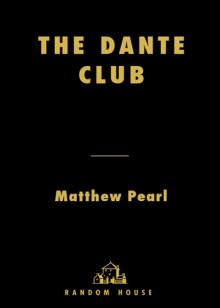 The Dante Club
The Dante Club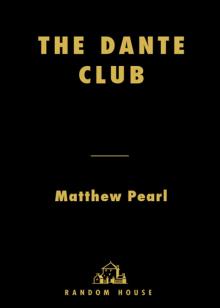 Dante Club
Dante Club The Poe Shadow
The Poe Shadow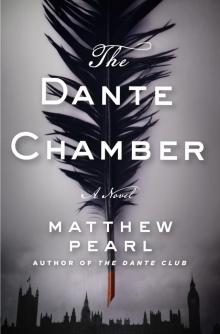 The Dante Chamber
The Dante Chamber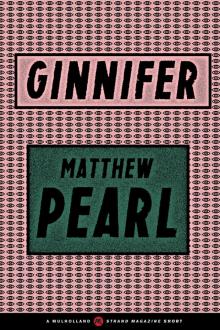 Ginnifer
Ginnifer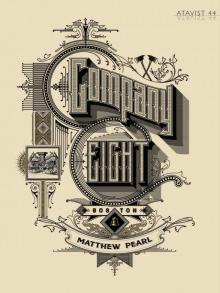 Company Eight
Company Eight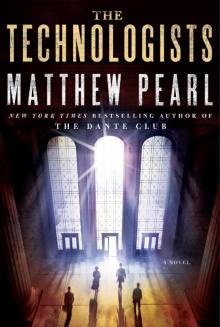 The Technologists
The Technologists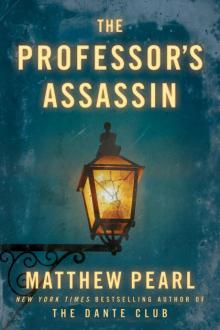 The Professor's Assassin
The Professor's Assassin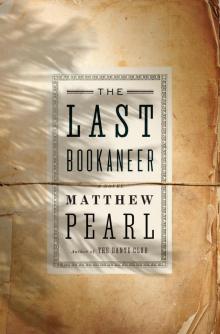 The Last Bookaneer
The Last Bookaneer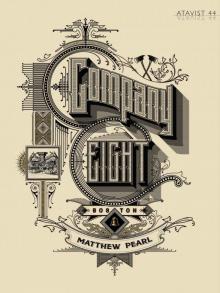 Company Eight (Kindle Single)
Company Eight (Kindle Single)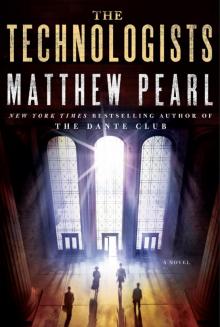 The Technologists: A Novel
The Technologists: A Novel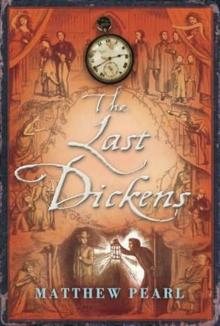 The Last Dickens
The Last Dickens